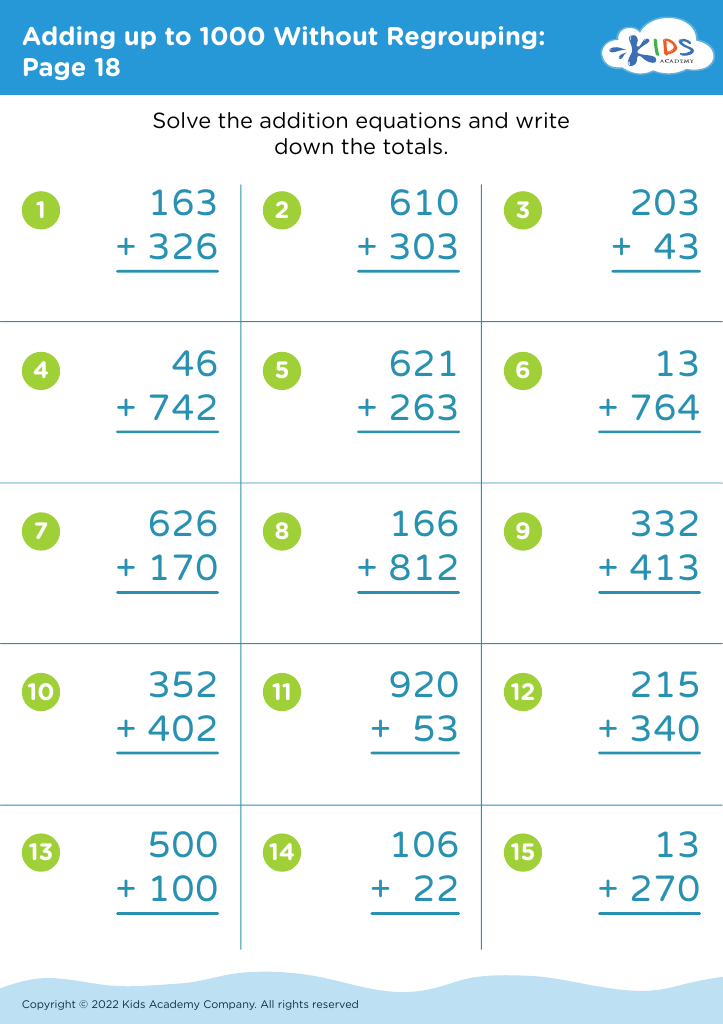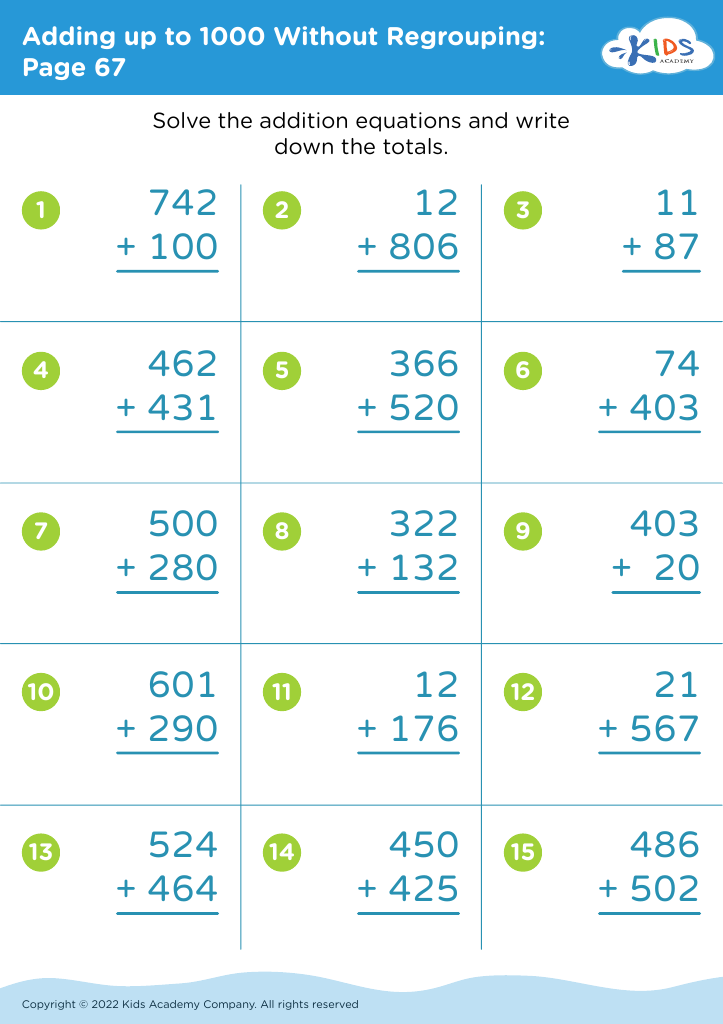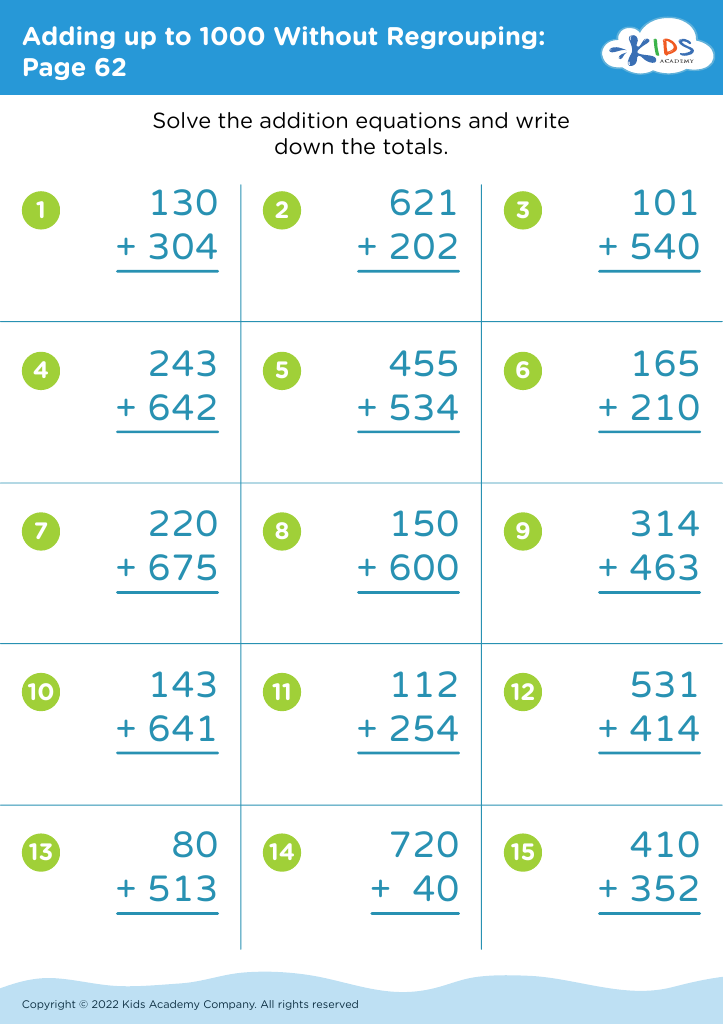Comparing Fractions Adding up to 1000 Without Regrouping Worksheets for Ages 3-7
3 filtered results
-
From - To
Discover our engaging "Comparing Fractions Adding Up to 1000 Without Regrouping Worksheets" designed specifically for children ages 3-7. These worksheets provide a fun and interactive way for young learners to understand fractions while reinforcing essential math skills. Tailored to keep little ones interested and motivated, our exercises encourage exploration of fractions without regrouping, making concepts easier to grasp. Perfect for home or school use, these resources support cognitive development and boost confidence in young mathematicians. Enhance your child's learning experience, and watch as they master comparing fractions in an enjoyable and effective way! Download now and start learning together!
Understanding how to compare fractions and adding them up to 1000 is crucial for young learners, particularly for ages 3-7, as foundational mathematical skills take root during these formative years. For parents and teachers, emphasizing proficiency in these concepts is vital because it builds critical thinking, problem-solving abilities, and enhances numerical literacy.
Learning to compare fractions nurtures students' understanding of parts of a whole, which is essential not just in math but also in real-life scenarios, such as sharing food or measuring ingredients. Furthermore, being able to add fractions without regrouping helps children solidify their understanding of whole numbers and enhances their mental math abilities, laying a solid groundwork for more advanced arithmetic operations.
Moreover, engaging students with interactive and enjoyable activities centered around these concepts fosters a positive attitude toward learning mathematics. It encourages perseverance and boosts their confidence in tackling more complex problems in the future.
By prioritizing these skills at an early age, parents and teachers can help cultivate a sense of curiosity and a love for learning, providing a balanced educational experience where students feel empowered to explore mathematical concepts with joy and understanding. Overall, these skills ensure readiness for future academic challenges.












